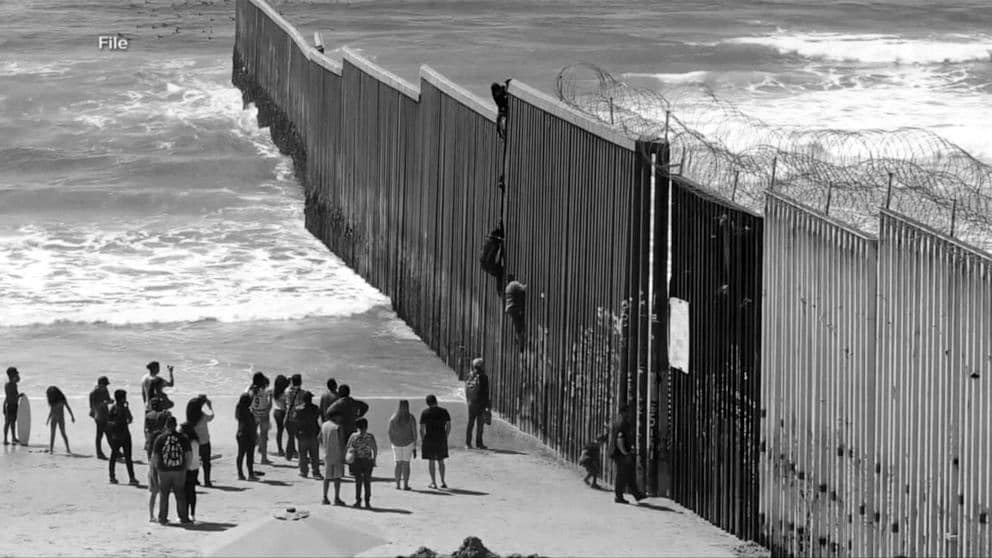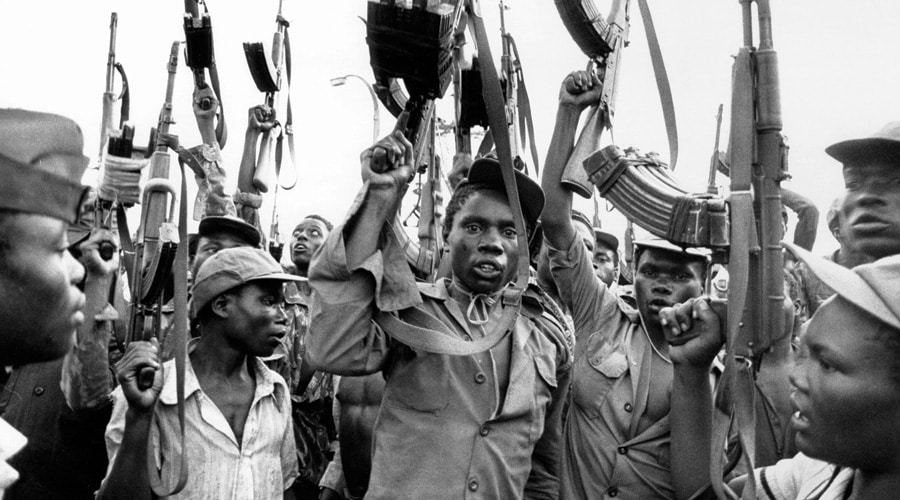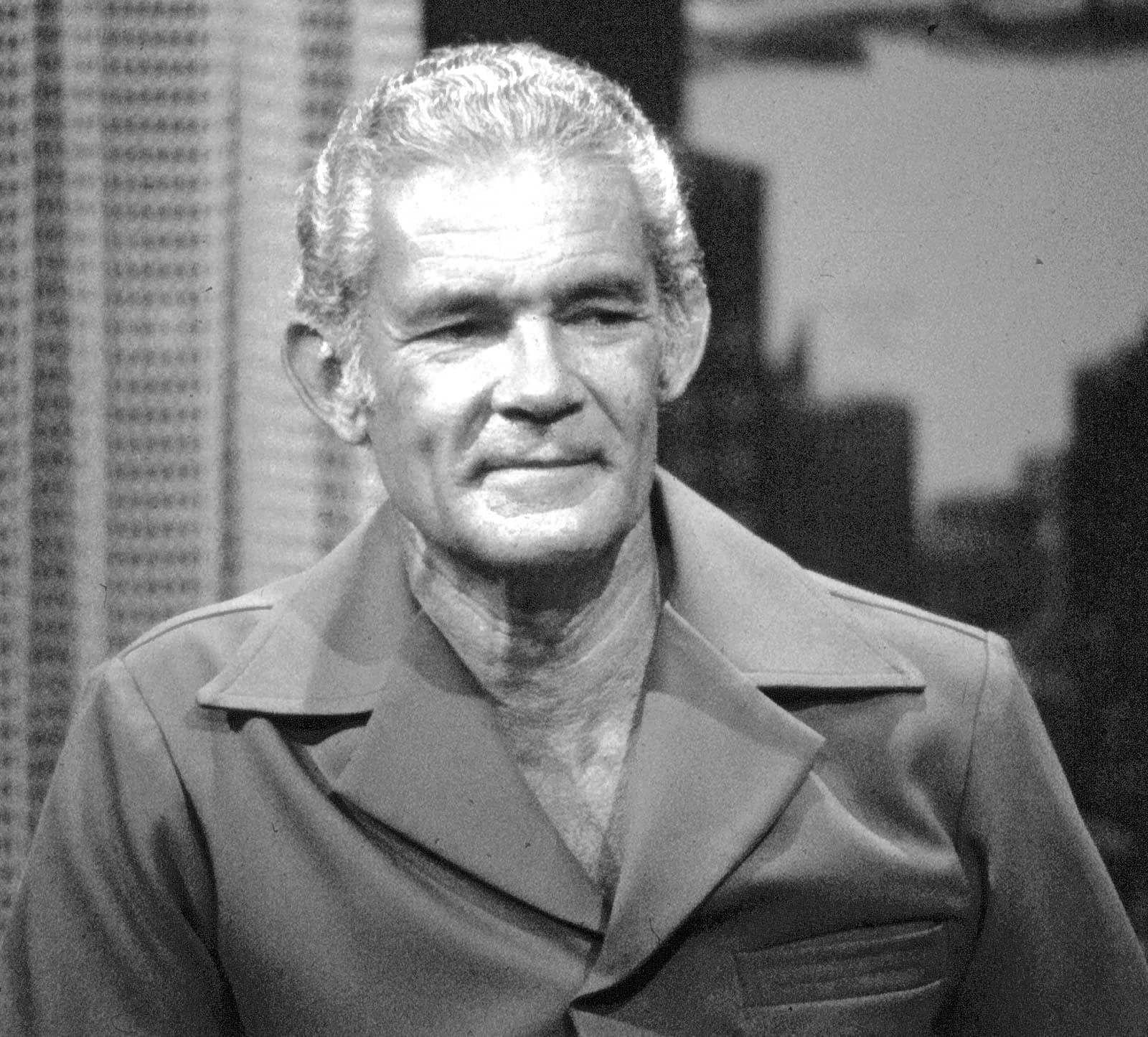Julius Nyerere‘s Reflections on Issues Affecting Africa
Mr. Chairman, I want to thank you, not for asking me to come as a hat but for the topic you have chosen for this Conference – issues affecting Africa. The excuse for holding this meeting is a different matter and that is why I was reluctant to be the main speaker here, because of that excuse. But the same topic of this conference I think is very important for Africa. When you sent me an invitation letter with documents that listed the issues that you wanted this conference to address, I was very impressed and very hopeful, I sincerely hope that participants will do a good job on the topics you have chosen, because I think they are very important topics for our future. You wanted me to reflect. I told you I had very little time to meditate. I am not an engineer and therefore what I am going to say may seem trivial, unplanned, and perhaps meaningless to what you intend to do; but I thought that as if by reflection, you wanted me to go back and remember the political life I have lived for the last 30,40 years, where I cannot go back there. And in any case, despite the fact that it is important to go back in history, what you are talking about is what might be important to Africa in the 21st Century. The next century.
The Obvious and the Not So Obvious Issues Affecting Africa
What I want to do is share some ideas on two issues affecting Africa. One, the obvious; I say you will discover how obvious it is. Another, not very obvious, and I will spend a little time in this less obvious one, because I think that will put Africa in what will be the African context in the 21st century. And the new African leadership will have to deal with the situation in the world of tomorrow – in the world of the 21st century. And the Africa I’m talking about, is sub-Saharan Africa. I will explain later why I chose to be specific to sub-Saharan Africa. It’s because of a point that I want to emphasize. today It seems that in the world of tomorrow there will be three centers of power: some, political power, some economic power, but three real power centers in the world. One station is the United States and Canada, which you can call North America. That would be a great economic power and would in the long run be the only military power, but it is a great economic power. The other will be Western Europe, another major economic power. I think Europe deliberately chooses not to have military power. I think they want to deliberately leave it to the United States. The other is Japan. Japan is in a different group but it is better to say Japan, because the power of Japan is very clear, the economic power of Japan is clear. Those three forces will affect the countries around them. I was speaking in South Africa recently and mentioned Mexico. Former Mexican President, I think it will be after the revolution in 1935, no, after the coup, the former Mexican President is reported to be complaining about his country or mourning about his country. “Poor Mexico”, said the President, “Far from God and it is close to the United States”.

He was complaining about the loss of being a neighbor of a giant. Today, Mexico has decided not only to suffer the losses of being too close to the United States, but to take advantage of the opportunity to be so close to the United States. And the United States itself has realized the importance of trying to give Mexico a chance. In the past there were major US attempts to prevent people from moving from Mexico to the United States, people looking for work, looking for jobs. So, there was a police force, until it was heavily guarded to prevent trying Mexican citizens, who are looking for work, from moving to the United States. The United States found that it did not help. It can’t help. There is a kind of economic impact where whatever you do, if you are rich, you attract the poor. They will come, if possible, they will even risk their lives to come. They will not let you have that wealth alone. They will come. So, the United States tried very hard to prevent Mexican citizens from entering the United States; they failed and the result was NAFTA. It is in the interest of the United States to try and create jobs in Mexico, because if you don’t, the Mexicans will just come, to the United States, so they do that.
Europe, western Europe, is very rich. It has two Mexicans. One is Eastern Europe. If you want to prevent these Eastern Europeans from going to western Europe you must create jobs within Eastern Europe, and Western Europe does just that. They do that. They will help Eastern Europe move forward. The whole of Western Europe will be doing it, the Germans are doing it. The Germans originally started with East Germany but are also spending a lot of money on helping other Eastern European countries to continue, including by accident, or unfortunately for them, including Russia. Because they have realized, the Europeans have realized, including the Germans, that if they do not help Russia to move on, they will soon get into trouble. So, it is in the interest of Western Europe, to support Eastern Europe as well as Russia. They are pouring a lot of money into that part of the world, into that part of Europe, to try and help it continue.
I said Western Europe has two Mexicans. I mentioned one. I will skip the second one. I skip Europe’s second Mexico. I will go to Asia. I will go to Japan. Japan – a rich island, in fact it is very rich, but it is an island. I don’t think they have a strong desire for the unemployed from Asia to Japan. It is better to help them where they are, and Japan spends a lot of money in Asia, to help create jobs in Asia, to stop those Asians who dream about going to Japan to look for work. In any case, Japan is too small, they can’t get rich there. But apart from what Japan does, of course Asia is Asia, Asia has China! Asia has India, and the smaller Asian countries are not very small. Indonesia’s population is twice the population of Nigeria, which is huge for you. Asia is therefore a unique group, of Third World countries, to the South, Asia is like an isolated group. It continues as the Authority, and Europe knows, and the United States knows. And despite the great Atlantic Ocean, they are now talking about the Atlantic Rim. That is in recognition of the importance of Asia.
I return to Europe. Europe has Mexico second. And the Second Mexico of Europe is North Africa. North Africa for Europe is like what Mexico has for the United States. Unemployed North Africans will not go to Nigeria, they will be thinking of Europe or the Middle East, for important

geographical and historical reasons and religion and language. North Africa is part of Europe and the Middle East. Nasser was a very capable leader and a great African leader. I got along very well with him. Immediately after sending me the Minister, and I had a long discussion with his Minister at the State House here, and throughout the discussion, the Minister tells me, “Mr. President this is my first visit to Africa”. North Africa, because of the influence of the Mediterranean Sea and I say history and culture, and religion, North Africa is being drawn towards the North. When North Africans are looking for work, they go to western Europe and Southwest Europe, or they go to the Middle East. And Europe has a specific policy for North Africa, a specific policy for North Africa. Not just about development, but also about security. Because if you do nothing about North Africa, they will go. In sub-Saharan Africa, it is quite different. If you are unemployed here in Tanzania, where are you going? The Japanese are not afraid that you will flee to Japan. North Americans are not afraid that you will flee to North America. Not even from West Africa. The Atlantic, the Atlantic Ocean, like the Mediterranean, has its own logic. But it unites Northern and Western Europe, not North America and West Africa.
Sub-Saharan Africa Isolation Status
Sub-Saharan Africa is isolated and represents one of the major issues affecting Africa today. That is the first point I want to make. Sub-Saharan Africa is completely isolated in terms of the plan to develop power in the world of the 21st Century. There is no Authority center whose personal interests are critical to the development of Africa, there is no such center. Not North America, not Japan, not Western Europe. There is no personal interest in engaging in sub-Saharan Africa. Sub-Saharan Africa is on its own. Na si jambo baya. For those of you who don’t know Swahili, I just whispered, “And it’s not a bad thing”. That was the first thing I wanted to say about sub-Saharan Africa. The African leadership, the future leadership of Africa, will have to keep that in mind. You are alone, Mr. Vice President. You mentioned about, you know, in the past, there was a cold war in Africa and some Africans probably used it well. I never did that. I have never succeeded in using the Cold War in Africa. We suffered, we suffered throughout the Cold War. See Sub-Saharan Africa. I’ll talk about that later. Southern Africa, I mean, see Southern Africa; It has been ruined because of a combination of Cold War and racism. The ruined part of Africa. It would be very different. But the Cold War is over, thank God. But thank God the Cold War is over, the possibility of Mobutus also disappearing. So that was the first thing I wanted to say about sub-Saharan Africa. Sub-Saharan Africa in those terms is excluded. That is what I said was not obvious and I had to explain it in words that I have tried to explain. another, the second point I want to raise is the obvious one. Africa has 53 nations, most of them in sub-Saharan Africa. If these states were the strongest, Africa would be the most powerful continent in the world. But the fact on the table is Africa in totality is very weak, so obviously the numbers are not strong. So, the second point about issues affecting Africa and again I am talking about sub-Saharan Africa; divided, into pieces. Since the beginning of independence forty years ago we were opposed to the idea, that this continent is very fragmented. We called it the “Balkanization” of Africa. Today I think the Balkans are now talking about European “Africanization”. African states are too many, too small, some illogical, be it political logic or ethnic logic or anything. They cannot be independent. This is not a testimony.
African Borders Inherited from Colonialists
The OAU was established in 1963. In 1964 we went to Cairo to hold, by translation, our first meeting after the inaugural meeting. I was responsible for moving the resolution that Africa must accept the borders we have inherited from the colonists, accept them as it is. The resolution was adopted by the agency on two occasions, one from Morocco, and the other from Somalia. Let me say why I moved that resolution. In 1960, before this country became independent, I think at the time I was Prime Minister, I received a delegation of Maasai elders from Kenya, led by an American missionary. And they came to persuade me to allow the Maasai to apply for something called the Anglo-Masai Treaty so that part of the Maasai in Kenya would be part of Tanganyika so that when Tanganyika became independent, it would include part of the Maasai, from Kenya. I suspected the American missionary was responsible for that idea. I don’t remember ever being so kind to her. Kenyatta at that time was in custody, and here is someone coming to me, that we should break Kenya and make part of Kenya part of Tanganyika. But why does Kenyatta not claim that Tanganyika Maasai should be Kenyan Maasai? by the same logic. That was in 1960. In 1961 we were free. 1962, early 1962, I resigned as Prime Minister and then a few weeks later I received Dr. Banda. God put him in a good place. I received Dr. Banda. We had just, FRELIMO had established itself here and now we were in the process of starting a war.

So, Banda comes to me with a big old book, and a lot of maps in it, and he tells me, “Mwalimu what is this, what is Mozambique, nothing is known to be Mozambique”. I said “What do you mean there is no such thing as Mozambique”. So, he showed me this map, and he said “That part is part of Nyasaland. (It was still Nyasaland at the time)” this part is part of Southern Rhodesia, this part is Swaziland, and this part, which is the northern part, part of Boxes, that’s your part. “So, Banda threw Mozambique in that way. I mocked his idea, and Banda never liked anyone who mocked his ideas. So, he left and went to Lisbon to talk to Salazar about this wonderful idea. I don’t know what Salazar told him. That was ’62. ”63 we are going to Addis Ababa for the launch of the OAU, and Ethiopia and Somalia are at war over Ogaden. We had to send a special message to bring the Somali President to attend the inaugural meeting, because the two countries were at war. Why? Because Somalia wanted Ogaden, the whole province of Ethiopia, and said, “That is part of Somalia”. And Ethiopia was silent, the King calmly told us “that all of Somalia was part of Ethiopia”. So, all three, the Maasai delegation, led by an American missionary, Banda’s old map book, and Ogaden, prompted me to relocate the Declaration, to Cairo in ’64. And I say, the Declaration was adopted, two skeptical countries, and one was Somalia because Somalia wanted Ogaden, Somalia wanted northern Kenya, Somalia wanted Djibouti. We gave up all our thoughts on socialism. throw it away, give it to the Americans, give it to the Japanese, give it to them, so that they can, I don’t know, can do whatever they want to do with it. We embraced capitalism, just fine! But you must be self-sufficient. You here in Tanzania do not dream, that if you privatize everything that is blessed, including the prison, then foreign investors will come running. No! No! You are dreaming! Hawaii! They will not come! Just try it. There is more privatization in Eastern Europe than here. Norman Manley, Prime Minister of Jamaica, in those days the call was nationalism, not privatization. In those days the calling was nationalism. So Norman Manley was asked if Jamaica was heading for independence, “Mr. Prime Minister, are you going to nationalize the economy?” His response was: “You can’t nationalize anything”. You people here are so busy not to nationalize anything, we built something, we built something to privatize. But quite frankly, for the desire of Europe, and the desire for North America, this does not privatize anything. People who are really interested will go to Eastern Europe, they will go to Russia, they will not flee to Tanzania! Your blessed National Bank of Commerce, it is a branch of some major bank somewhere, and in Tanzania you say “It’s too big we have to split it into pieces”, which is absurd.

Transition from Sovereign States to Unity
Sub-Saharan Africa is isolated. Therefore, to continue, in principle, it will have to rely on its own resources. Domestic, national, and African resources will have to rely on Africa. The future leadership will be forced to design, try to implement policies for national self-determination and self-reliance. They have no other choice. None! And this, the need for self-preparation together is what drives me to the next level. Small countries in Africa must move towards either unity or cooperation, African unity. The future leadership, of the 21st Century, should have less respect, less respect for this so-called “national sovereignty”. I’m not saying take up arms and destroy the country, no! The idea that we must protect Tanganyika, then protect Kenya as it is, is absurd! We in Africa, have inherited from Europe. They are the ones who created the nations with excellence. For centuries they had fought wars! The history of Europe, the history of building Europe is the history of war. And sometimes when their wars are raging even though they are European wars they call them world wars. And we all get involved. We are fighting even here in Tanganyika, we are fighting here, one world war. These white, powerful whites, where little Belgium is stronger than sub-Saharan Africa combined, these powerful European nations are moving towards unity, and you people are talking about tribalism, this is nonsense! I tell you. How can anyone think of a tribe as a union of the future, no! Europe right now, you can take it as if it is Gid given, Europe will never fight Europe again. Whites do not fight against their fellow Europeans. They are on the verge of unity – even a little, the small Balkans that are divided, Yugoslavia is divided, but they are divided, at the same time self-construction continues. They are divided and say we want to come to be in greater unity. So, there is a movement to build itself, there is a movement to build Europe. These countries that are old, old, old, hundreds of years old, forget this, are moving towards unity. And you people, do you think Tanzania is sacred? What is Tanzania! You must move forward in unity. If these powerful countries see no future in the nation states – what do you think you have in the future. So, if we cannot move, as our leadership, our future leadership will not lead us into great nations, which I hope they will try; we tried and failed. I tried and failed. One of my failures was that. I tried East Africa and failed. But do not despair because we, the first leadership failed, no! You’re trying again! We failed, but that idea is a good idea. That these countries should come together. Do not leave Rwanda and Burundi alone. They cannot survive. They can’t. They are trapped in a kind of hatred. If we can’t move towards becoming great nations, at least let’s move on to greater cooperation. This is starting to happen in addressing these major issues affecting Africa. And the new leadership in Africa should encourage it.
I want to say one or two things about what is happening in Southern Africa. Please accept the logic of being together. South Africa is small, South Africa is very small. Their income per capita now is, I think $ 2000 a year or so. Compared to Tanzanians, of course, it is very large, but it is poor. If South Africa starts to tackle the problems of racist political legacy, they have no money! But compared to the rest of us, they are rich. And so, in Southern Africa, there is also a kind of change, also economic change. South Africa’s neighbors are sending job seekers to South Africa. And South Africa will have to agree with the logic of that, that they are big, attractive. They attract the unemployed from Mozambique, and from Lesotho and elsewhere. They have to accept that fact of life, it’s a problem, but they have to accept it. South Africa, and I am talking about post-apartheid South Africa. In the aftermath of apartheid politics South Africa has the most developed private sector in the continent. It’s white, what is it? So, forget that it is white, it is South Africa, the strongest, most developed. If South African investors are starting a new type of trip, you have to accept it. It would be ridiculous, utterly ridiculous, for Africans to go abroad to seek investment from North America, from Japan, from Europe, from Russia, and then, when these investors come from South Africa to invest in your country you say, a! a! These fellows now want to dominate our economy – this is nonsense. You cannot want two things at once. You want foreign investors or you don’t want foreign investors. Now, the foreign investors found near you are those from South Africa. And let me tell you, when Europe is thinking about investing, they can go to South Africa. While North America is thinking about investing, they can go to Africa. Even in Asia, if they want to invest, the first country they can think of in Africa could be South Africa. So, if your South Africa will be the engine of your development, accept the truth, accept the truth, do not accept this sovereignty, South Africa will limit your sovereignty, what sovereignty you have. Many of these debt-ridden countries in Africa now lack independence, they have lost it. Gone. It is in the hands of the IMF and the World Bank. What freedom do you think there is? So, in Southern Africa there is an opportunity, in Southern Africa, the SADC Group, because of South Africa being in it. Because South Africa is now not a regional architect, but a partner in development. In southern Africa there are great opportunities, but you need leadership, one of the big issues affecting Africa today, because if you get the right leadership there, within the next fifteen years the region will be the ASEAN of Africa. And it is possible. But forget the protection of your sovereignty. I believe South Africans will be careful enough to know that if they are not careful there will be this hatred for the older brother, but that older brother, in fact, is not so great. West Africa. Another wing is forming there, but that depends a lot on Nigeria my brother (if you look at the Nigerian High Commissioner), quite a bit. Without Nigeria, the future of West Africa is a problem. West Africa is more divided than East Africa. Very scattered, small countries. Leadership will be forced from Nigeria. It came from Nigeria into Liberia; It came from Nigeria in the Sierra Leone case; You will have to come from Nigeria to activate ECOWAS. But the military in Nigeria must allow Nigerians to use that power freely. And it is my hope that they will do so. I told them I was going to speak things randomly and wandering around and it would be messy, but thank you very much.
For more Nyerere speeches click here!


































